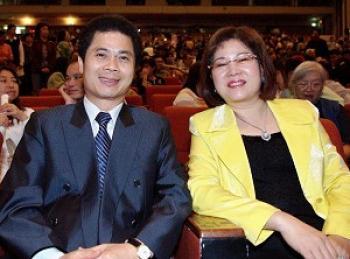Another red alert comes from the Hong Kong Government’s finances. The authorities said lately that Hong Kong’s recovery after the pandemic is far from expected, and the fiscal deficit may exceed HK$100 billion (US$13 billion). That scenario makes many financial industry insiders worry that if Hong Kong’s fiscal reserves decline further, it will wobble the once stable linked exchange rate mechanism that has been in force for the last 40 years.
In the latest “Policy Address,” the Hong Kong government proposed to reduce the stamp duty on share transactions and adjust the “harsh measures” previously implemented on the property market. Coupled with the reduction in income from land sales and stamp duty expected this fiscal year, as well as the expenditure the treasury needs to cope with the new measures proposed by the policy address, it is likely to have more than HK$100 billion (US$13 billion) deficit. Including this one, there are four years out of the last six that the government has seen deficits, and this year is likely to become the third year of recording over HK$100 billion in negative incomes.



